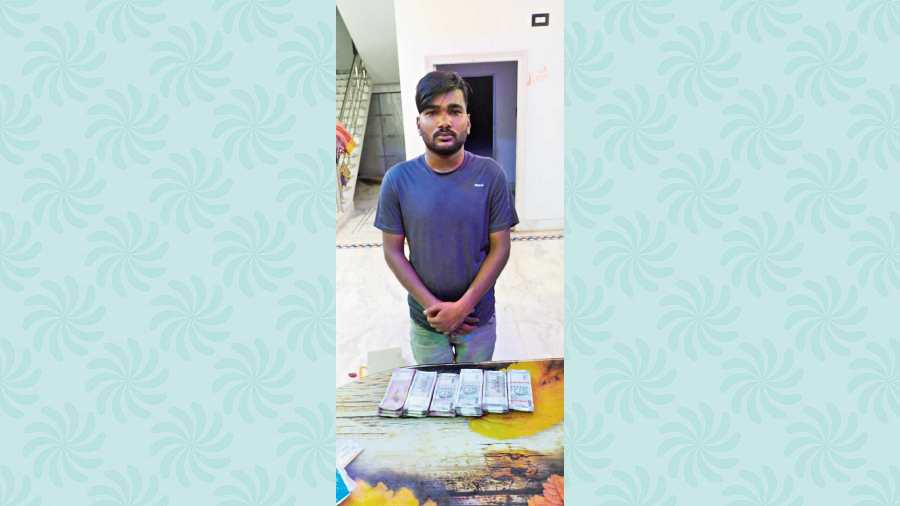A 20-year-old man from a village in Jharkhand’s Jamtara district, who had allegedly hired around 30 local youths to run a racket that called up people and duped them by convincing them to share their banking details, was arrested on Wednesday.
The name of Ajay Mandal, the accused, had emerged during an investigation into a complaint by an elderly resident of Behala in southwest Kolkata who had lost Rs 20.54 lakh after talking to a tele-caller, who had allegedly convinced him to click on a link that compromised his phone.
Around 2,500 people in Kolkata alone have been duped of over Rs 8.16 crore by such rackets, whose members either called up the victims or sent them text messages, persuading them to click on links sent to their phones.
Once they did so, their phones were compromised and the fraudsters got access to their bank accounts.
Ajay’s arrest took the number of people held in the case to 13.
The police said Ajay and his brother Ashok allegedly ran a racket that involved collecting pre-activated SIM cards, engaged people to call up targets asking for their banking details on various pretexts and hired men to open accounts and e-wallets to transfer money swindled out of the victims.
The brothers hired around 30 local youths to run the racket, said an officer.
Based on statements of the accused arrested earlier, a team raided Ajay’s house and found him inside a loft.
“Rs 4.35 lakh was found in the prayer room of the house. Two mobile phones were seized from Ajay,” said deputy commissioner of Kolkata police, south-west, Swati Bhangalia.
Earlier this month, the police had arrested Dilkhush Kumar and Bipul Kumar for allegedly being part of the racket.
“The job of Dilkhush and Bipul was to open bank accounts in their names. The stolen money would be transferred to the accounts. The two would withdraw the money and hand it to Ajay. They would get a commission for that,” said an officer of Parnasree police station.
A senior officer said Ajay’s racket was spread across Kolkata, Nadia and Jharkhand.
“Members of the racket would procure SIM cards, open bank accounts and dupe people by posing as bank officials or representatives of telecom service providers. We are yet to ascertain how Ajay got the phone numbers of his victims,” the officer said.
“Each member of the racket had a task assigned to him. Some would procure pre-activated SIM cards and hand them to others who were recruited to call up the targets. Some would open bank accounts and hand the ATM cards attached to the accounts to Ajay, while some would use the ATM cards to collect the cash and pass it on to Ajay.”
The operation was kept “multi-layered” so the police could not easily reach the mastermind, the officer said.
Hundreds of similar rackets are active across Jamtara, targeting unsuspecting people living hundreds of kilometres away.


